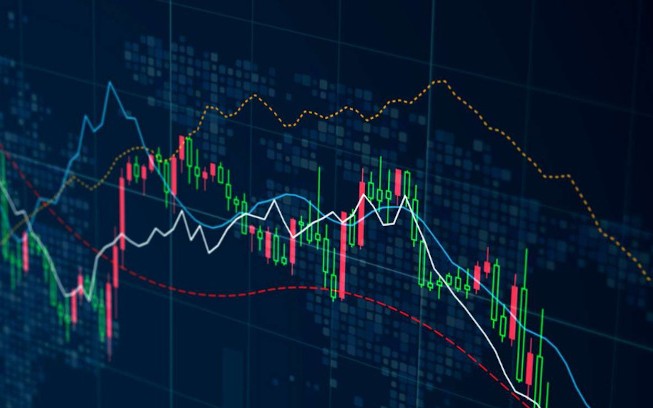
Understanding Forex Trading: Meaning, Benefits, and Strategies
Forex trading, also known as foreign exchange trading, is the process of buying and selling currencies with the goal of making a profit. The forex market is the largest and most liquid financial market in the world, with a daily trading volume exceeding $6 trillion. Forex trading involves the exchange of one currency for another and is conducted over-the-counter (OTC) through a network of banks, brokers, and individual traders, such as forex trading meaning Argentina Brokers. This article will explore the meaning of forex trading, the benefits it offers, and strategies for successful trading.
What is Forex Trading?
Forex trading entails speculating on the fluctuations of currency pairs against one another. Each currency pair consists of a base currency and a quote currency. For example, in the EUR/USD pair, the Euro is the base currency, and the US dollar is the quote currency. Traders purchase the base currency when they expect it to strengthen against the quote currency, and they sell it when they predict the opposite will happen. Forex trading is influenced by various factors, including economic indicators, geopolitical events, market sentiment, and interest rates.
How Does Forex Trading Work?
The forex market operates 24 hours a day, five days a week, across major financial centers worldwide, allowing traders to engage in trading at any time. The trading occurs via brokers, who provide the necessary platforms and tools to facilitate transactions. Traders can use leverage to control larger positions with a relatively small amount of capital, allowing for greater potential profits but also higher risks.
Key Terminology in Forex Trading
- Currency Pair: As mentioned earlier, this is the quotation of two different currencies, where one is exchanged for the other.
- Pip: A pip is the smallest price movement that a given exchange rate can make, typically indicated in the fourth decimal place.
- Leverage: Leverage allows traders to control a larger position size with a smaller amount of capital, magnifying potential profits and losses.
- Spread: The spread is the difference between the buying price (ask) and the selling price (bid) of a currency pair.
- Margin: This refers to the amount of money required to open and maintain a leveraged position.
Benefits of Forex Trading
Forex trading offers various benefits, making it an attractive option for both novice and experienced investors:
1. High Liquidity
The forex market is highly liquid, ensuring that currency trades can be executed quickly and with minimal price impact. This liquidity exists because of the large volume of transactions made by institutional and retail traders.
2. Leverage Options
Traders can utilize leverage to increase their potential returns. For instance, a 100:1 leverage allows traders to control $100,000 in currency with just $1,000. However, while leverage can amplify gains, it also significantly increases the risks of losses.
3. Diverse Trading Opportunities
With over 180 currency pairs available for trading, investors can diversify their portfolios and explore various trading strategies. This allows traders to take advantage of different economic conditions.
4. Accessibility
The forex market is accessible to anyone with an internet connection, making it easier for individuals to enter the market without significant barriers to entry.
5. Global Market
As the largest financial market in the world, forex trading enables individuals and institutions from different corners of the globe to participate, leading to more comprehensive market insights and opportunities.

Risks in Forex Trading
While there are many benefits to forex trading, it is essential to recognize that it carries inherent risks:
1. Market Risk
The forex market can fluctuate significantly due to economic events and geopolitical issues, which can lead to substantial losses for traders.
2. Leverage Risk
Using leverage can enhance potential profits but also magnifies losses. Traders must use leverage wisely and maintain adequate margin levels.
3. Counterparty Risk
Since forex trading occurs over-the-counter, there is a risk that the broker may default on their obligations. Selecting a regulation-compliant broker can mitigate this risk.
4. Emotional Risk
Emotions can impact trading decisions. Fear and greed may cause traders to make irrational decisions that may not align with their trading strategies.
Strategies for Successful Forex Trading
To navigate the complexities of forex trading successfully, traders often employ various strategies that suit their trading styles:
1. Technical Analysis
This strategy relies on analyzing price charts and using indicators to predict future price movements. Traders may look for patterns, trends, and signals that can assist their buying and selling decisions.
2. Fundamental Analysis
Traders who adopt fundamental analysis examine economic indicators, news events, and geopolitical factors that can influence currency values. By staying informed of global events, traders can make better-informed decisions.
3. Day Trading
Day trading involves opening and closing positions within the same trading day to capitalize on small price movements. This strategy requires a deep understanding of market trends and quick decision-making abilities.
4. Swing Trading
Swing traders hold positions for several days or weeks to benefit from anticipated market shifts. This strategy often combines technical and fundamental analysis for effective trade management.
5. Position Trading
Position traders take a long-term approach, holding onto positions for extended periods. This strategy aims to capitalize on significant price movements based on overall economic trends.
Conclusion
In conclusion, forex trading provides numerous opportunities for individuals looking to diversify their investment portfolios and capitalize on global currency fluctuations. Understanding the meaning, workings, and strategies involved in forex trading is crucial for achieving success in this dynamic market. However, it is essential to balance potential rewards with the associated risks, ensuring that traders make informed decisions and employ sound trading practices. With the right knowledge and strategy, forex trading can become a rewarding venture for many investors.

